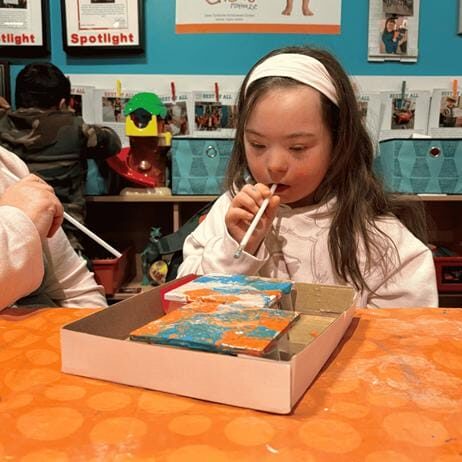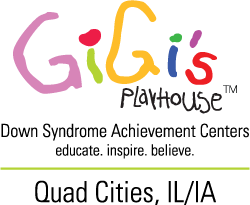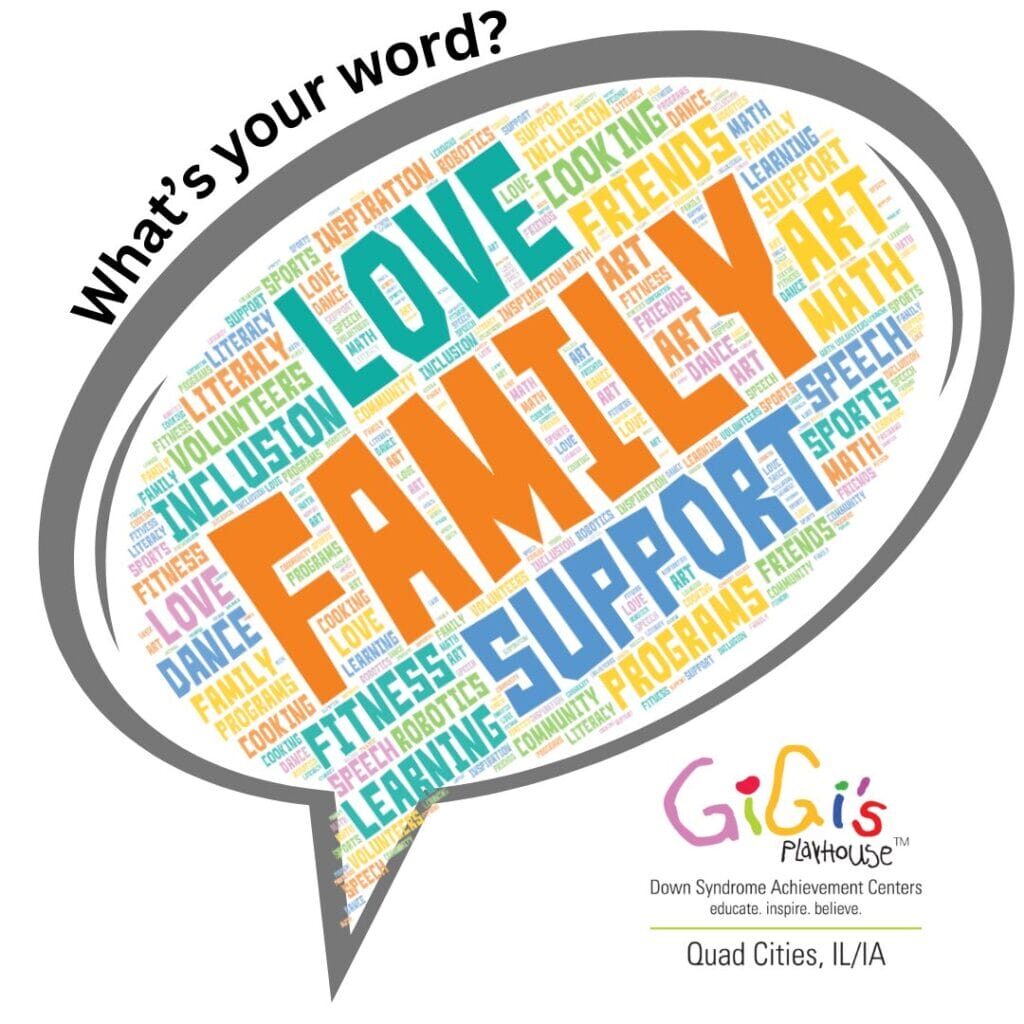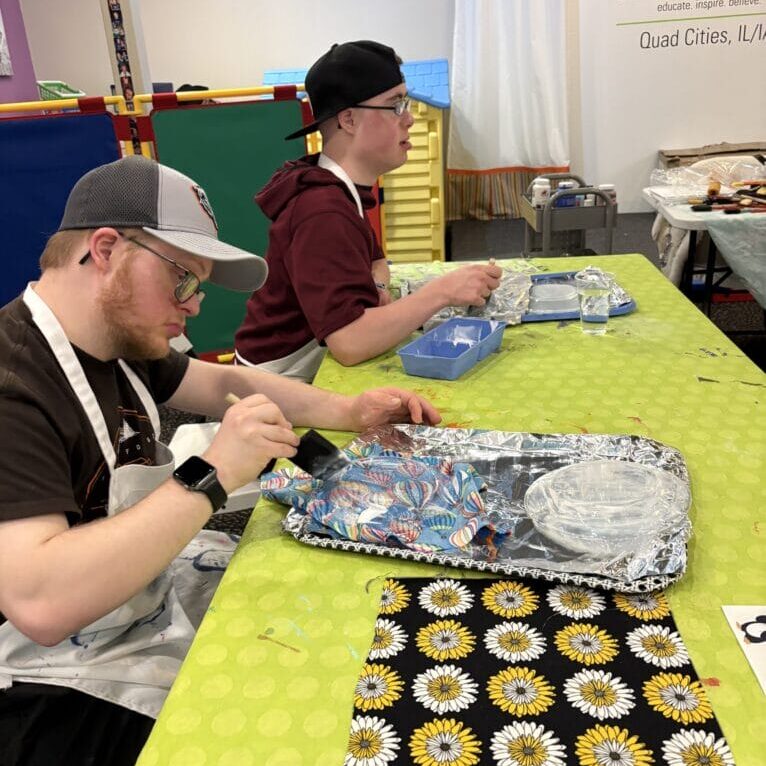3 Things to Know about Communication Boards
The Conversation Corner, By Brook Fieldman
Part 4 of 8 – There will be 2 blogs each week in this series with a night of in-person recap at the end of the month.
Weaving Communication Boards into Daily Routines
Many individuals with Down syndrome are visual learners and therefore benefit from visual support. One type of visual support is a communication board, which consists of symbols, pictures, and/or words that represent a multitude of actions and objects. In other words, these boards provide visual cues that clarify communication, reinforce verbal messages, and support language comprehension for both the talker and listener.
Communication boards are designed to assist individuals in expressing their feelings, thoughts, and desires. Integrating communication boards into everyday life can enhance communication by promoting independence for individuals with communication challenges. Although this beginner’s knowledge is important, I want to emphasize the importance of remaining educated when weighing the options of integrating a communication board into daily life.
I’ve included additional information about communication boards below.
- Communication boards can be tailored to the specific needs and interests of an individual.
For instance, pictures can be selected based on an individual’s preferences, which assists in
making communication more meaningful. With that in mind, communication boards can be modified and updated as an individual’s communication skills and needs evolve. - By using a communication board regularly, individuals are granted greater opportunities to
practice and reinforce their language skills. - Portable or wearable communication boards can be used for increased convenience and
flexibility.
Now you may be wondering why you’d use a communication board if your loved one with Down
syndrome is verbal. There may be instances where an individual experiences temporary or situational challenges with verbal communication. A communication board can be helpful in these scenarios because they offer additional means for expression and comprehension. In instances like these, a communication board can serve as a backup for communication. Communication boards can provide reassurance and ensure that an individual can communicate effectively when needed. If you’re interested in exploring communication boards in greater depth, I recommend using the “Easy PECS” App to learn more and even create your own board.
Thank you for reading.
~Brook
Submitted by, Brook Fieldman, Augustana Intern
- Augustana College Class of 2024
- Communication Sciences and Disorders Major
- Disability and Asian Studies Minors
Handouts from this blog series can be seen here as they become available.
Join us for a recap night! Family Speaker: Communication & Expectations Monday, April 29th at 5:30
Register using this link.

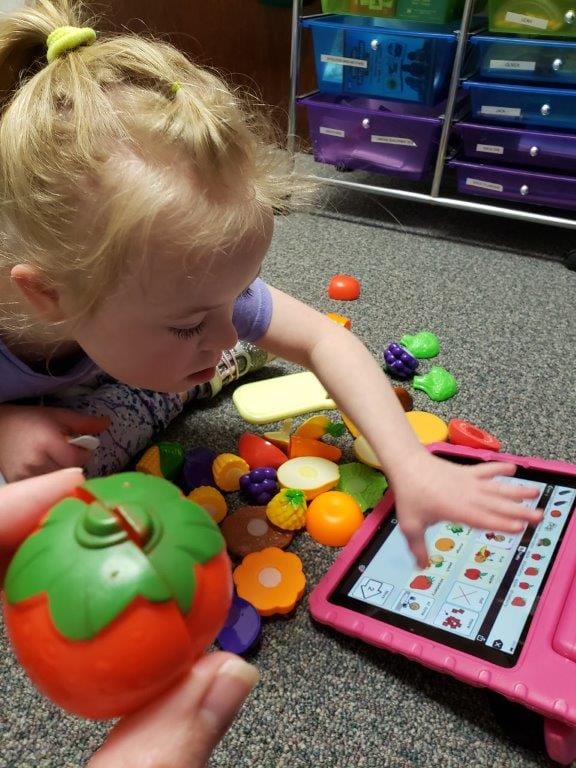
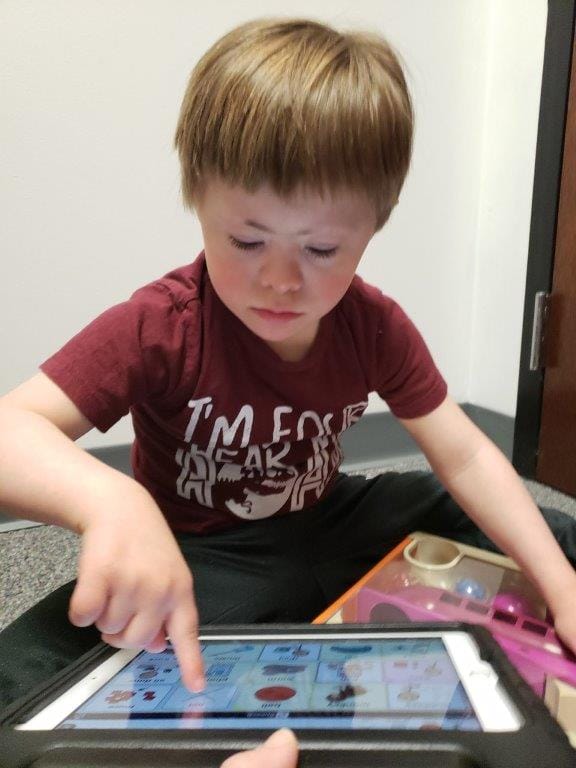
Recent Posts
